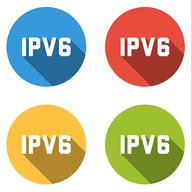About the author
Dr Holder has over twenty-nine years’ experience in the IT industry in senior technical and management posts. He is currently the CEO and chief consultant at Erion Ltd, the world-leading IPv6 training and consultancy company.
In his role at Erion, Dr Holder has had over twenty years of experience of providing IPv6 consultancy to leading global organisations world-wide. He has help organisations develop IPv6 strategies, enable IPv6 in their products, create IPv6 address schemas, deploy and secure IPv6. His experience covers all major networking and operating system platforms. Clients include, Alcatel Lucent, Arbor Networks, Atos Origins, Brocade, BT, Dell, Deloitte, Ericsson, HP, IBM, Microsoft and Sony. He is the author of white papers, solution guides, books and training courses on IPv6 and related topics. Recent papers include two published by the UK telecommunications regulator Ofcom on IPv6 and CGN.
In addition to his role at Erion, Dr Holder is active in promoting IPv6 both in the UK and abroad. He is the chairman of the IPv6 Task Force Scotland and is a regular speaker at conferences on IPv6.
Dr Holder has a PhD in Semiconductor Physics and an Honours degree in Electronic Engineering. He is a Chartered Engineer, a Fellow of the Institute of Engineering Technology and a Member of the IEEE. He holds several industry qualifications.


“Your suggestion is also a complete protocol change, including all the the stuff we have done with the upgrade to IPv6. Don't forget the address is handled by a lot of devices. So an update to a 64-bit-address would have the same effort as the update to 128 had. Implementations of IPv6 are almost finished. We already in a phase where we can say - just switch it on.”
You are absolutely right, after a couple of decades we are now at the stage where just switching on IPv6 is possible. Most of the technical blockers have gone. It is a great time to be deploying IPv6.
“Disclosure: author of this article also runs an "IPv6 consulting" company for enterprises. If I understood right, the author makes money thanks to IPv6 being difficult to implement. Author would be broke if IPv6 were well designed.”
Hi "Conflicted", Thanks for the "disclosure". It isn't really something I keep secret! I appreciate the advertisement ;-). Frankly, the perception that IPv6 is difficult to implement is a hindrance to deployment. This is probably not a great advantage in selling IPv6 consultancy or training services. Having said that, if it was easy, many of us in the industry wouldn't have a job!
“The only way IPv6 will be implemented is when IPv4 truly runs out of available addresses. New organisations will have no choice but to deploy IPv6. With that said, there is so many things wrong about this article. Performance improvements in IPv6 ? Last I checked, most websites were slower to load on IPv6 than on IPv4. Don't go cherry picking 3 websites that load faster. "Performance" is simply not an argument for IPv6. Analytics ? Are you saying NAT makes it impossible to do proper analytics ? Web analytics is done mostly with cookies and web browser fingerprinting. IP addresses are usually not used, or as a last resort. That's another odd argument. The increasing use of Carrier-Grade NAT & IPv4 expiration is honestly the only argument in favor of IPv6, and they're sufficient. There's no need to make other bogus claims. All in all, your arguments to solve the blockers are very unconvincing compared to the hurdles of implementing IPv6. Nobody likes IPv6. Nobody wants to work with it. And all of the concerns are very valid. Calling IPv4 an "inferior" and "broken" protocol when IPv6 has been failing for over 20 years ? That's bold.”
Thanks for your comments. There is no doubt that the biggest driver for IPv6 adoption is the exhaustion of IPv4 address space. In recent months I have had an increasing number of calls from clients whose plans to adopt IPv6 have been accelerated due to the exhaustion of their IPv4 address space. Some are LIRs others are well-known global enterprises. I imagine that most readers of this blog will know that the IANA address pool was exhausted on 3rd February 2011, APNIC on 19th April 2011, RIPE on 14th September 2012, LACNIC 10th June 2014 and ARIN 24th September 2015. Today, if you require additional IPv4 address space you have limited set of options. If you are a new LIR then you can obtain a one-time-only /22 (1024 addresses). We have clients in this category and for them having only 1024 addresses is a significant challenge for their business. If you are not a new LIR then you may; (1) go to the address transfer market to buy address space, (2) purchase an organisation that has space, (3) free up existing address space and (4) find another way. We have clients who have taken all these approaches. So, it is true that the IPv4 address space exhaustion is a powerful driver for IPv6 adoption. However, it is not the "only way IPv6 will be implemented". The reason for this is that the IPv4 address exhaustion indirectly affects everyone. CGN is one example of this. You may not be behind CGN, but those that you communicate might be. Another example would be the ongoing fragmentation of the IPv4 address space. This has implications for routing, geolocation, address reputation and address space squatting. Performance is a huge area that we cannot do justice to here. As I indicated, one significant problem is that of obtaining meaningful measures. No one can measure the performance of every dual-stack node to every other dual-stack node. Hence every report of IPv6 performance has been different (although usually better or very close to IPv4). However, the point I was making was that in "our experience" around the world, in a wide-range of different scenarios and networks, we have found that IPv6 performance is almost always better than IPv4. Even when we would have expected it to be worse. If I had chosen to "cherry pick" I could have written about some of our clients where they experienced massive improvements in performance after deploying IPv6. For example, one client operating in Europe and Middle East migrated their WAN and WAN applications to IPv6. Afterwards it was ten times faster than IPv4! No, you are right I was not saying that NAT or CGN makes it impossible to do analytics! I was specifically referring to analytics that depend on IP address. Whilst there are a lot of analytics that make use of cookies and fingerprinting it is not true that the use of IP addresses for client identification has diminished. It is often impractical or even impossible to use cookies or fingerprinting for client identification particularly in environments with high volumes of traffic or where speed is critical. Also, it is important to remember that there is a huge installed base of products and systems that continue to use IP addresses as an identifier. I agree with you that CGN and IPv4 address expiration are by far two of the most powerful arguments in favour of IPv6. I do not agree that my other claims are bogus! Thomas is correct, "nobody" is an exaggeration! ;-) There is a huge body of organisations that have deployed IPv6. Including many of the world's leading technology companies. Our clients who have deployed IPv6 come from all sectors and sizes of organisations. Whilst there can be challenges in deploying IPv6 it is often much easier that people believe. We have found that the most important factor in successful IPv6 deployments is making sure that key staff have a good knowledge of IPv6 before you begin.
Showing 3 comment(s)